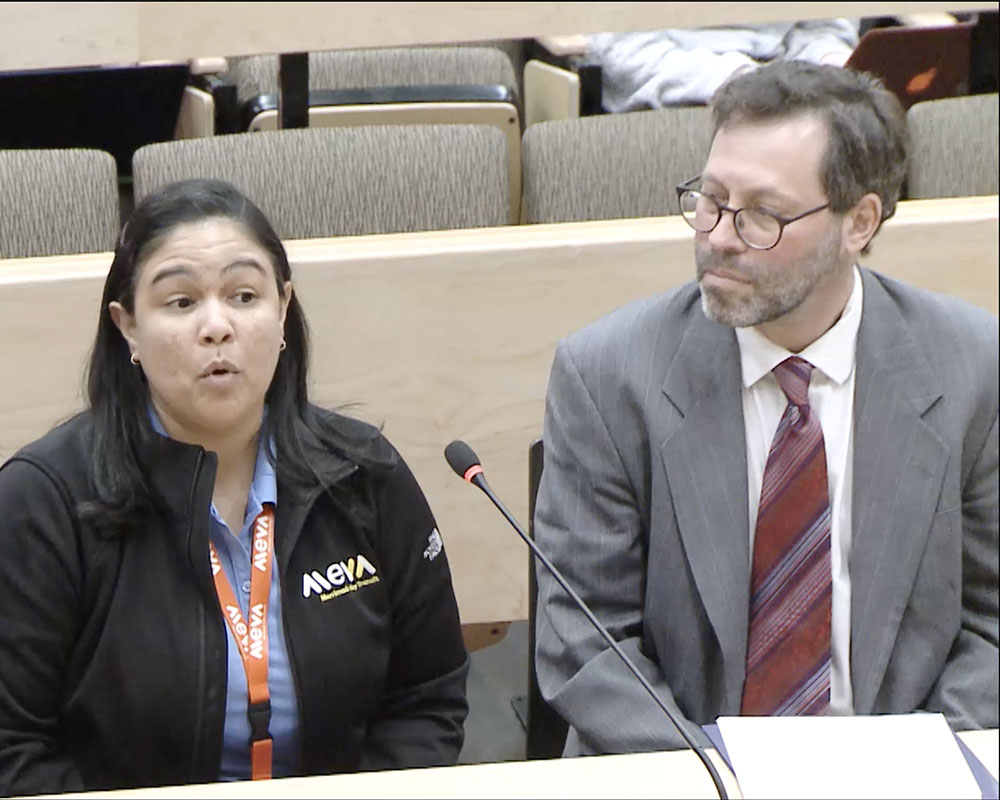As state lawmakers work on next year’s budget, Merrimack Valley Transit Authority leaders requested regional transit authorities receive the same amount of money as last year—with a slight boost for inflation—and the Department of Transportation continue administering a $15 million grant program.
Administrator and CEO Noah S. Berger, speaking at a meeting of the Massachusetts Joint Committee on Ways and Means last week, highlighted how the authority—or MeVa—made its services fare-free for all riders two years ago, an initiative he said they paid for with “Covid relief funds.”
“That has been unabashedly a success,” he said. “Since going fare-free, we have tripled our ridership, and even more importantly, and I think this is a better metric, complaints are down by a third.”
The authority transports 60% more riders than it did before the pandemic, Berger added, “which is unheard of in this industry.”
Chief Communications Officer Niorka Mendez said, “I’m always in the community. I’m talking to our riders. I’m at the senior centers, at schools, and it’s unbelievable the positive impact that our free service has had in our region.”
With the Massachusetts Bay Transit Authority usually dominating discussion, he argued the state’s 15 regional transit authorities—of which Merrimack Valley’s is one—are also essential. They serve three-quarters of the state’s communities and 55% of its residents.
For many of the people they serve, “this is the only way to get to food access, to get to medical care—even in the social aspect of visiting friends,” Mendez said. “On the bus, as a bus driver, I used to talk to them, and maybe we are the only people they talk to during the whole day. They don’t have a family member to talk to or vent [to].”
Berger told the committee about some recent initiatives, which included extending service hours to late evenings and Sundays, increasing bus frequency on high volume routes and adding a special route to the Bedford VA. As WHAV reported, 20 veterans are currently using the door-to-door mini bus since its launch three months ago.
Asking for the same level of purchasing power in this coming budget, Berger emphasized how wage and fuel inflation in the transportation sector are outpacing price growth in other areas of the economy. He also noted with concern that last year’s $15 million grant program was not in the governor’s preliminary budget. He further requested the $15 million be directly added to regional authorities’ operating budget.
State Sen. John F. Keenan, a member of the ways and means committee, mentioned he had seen the authority’s operation, saying “well done.”

